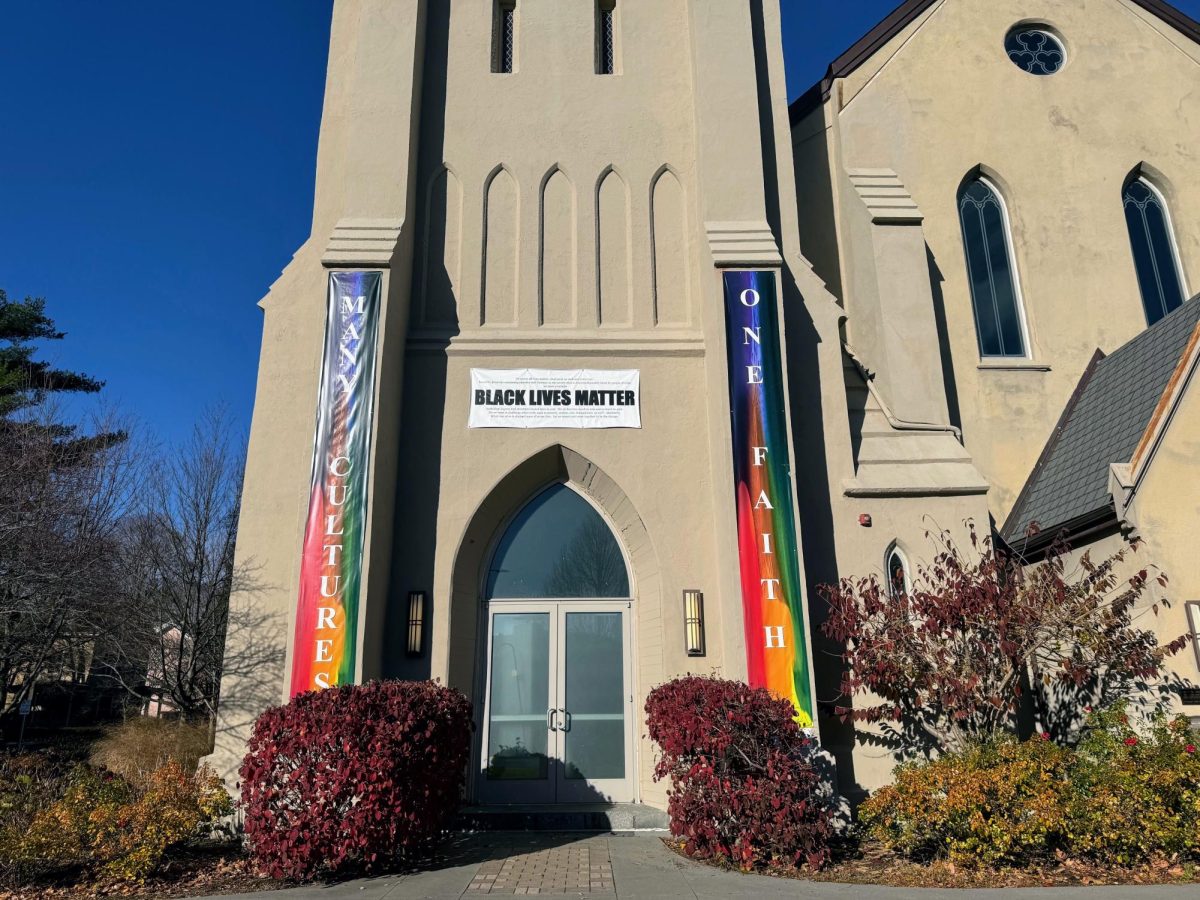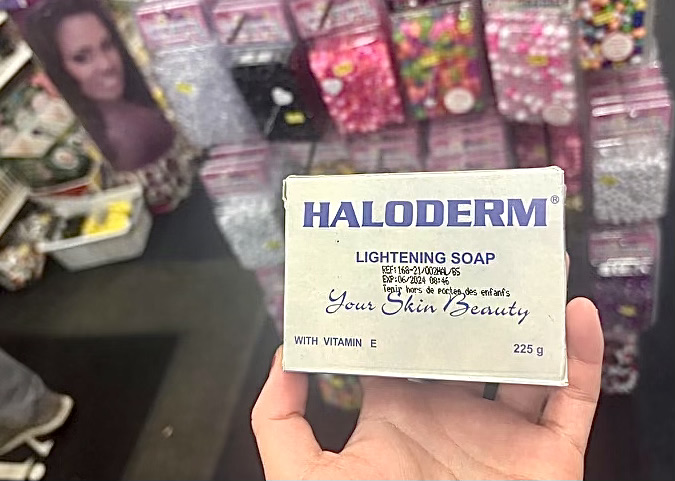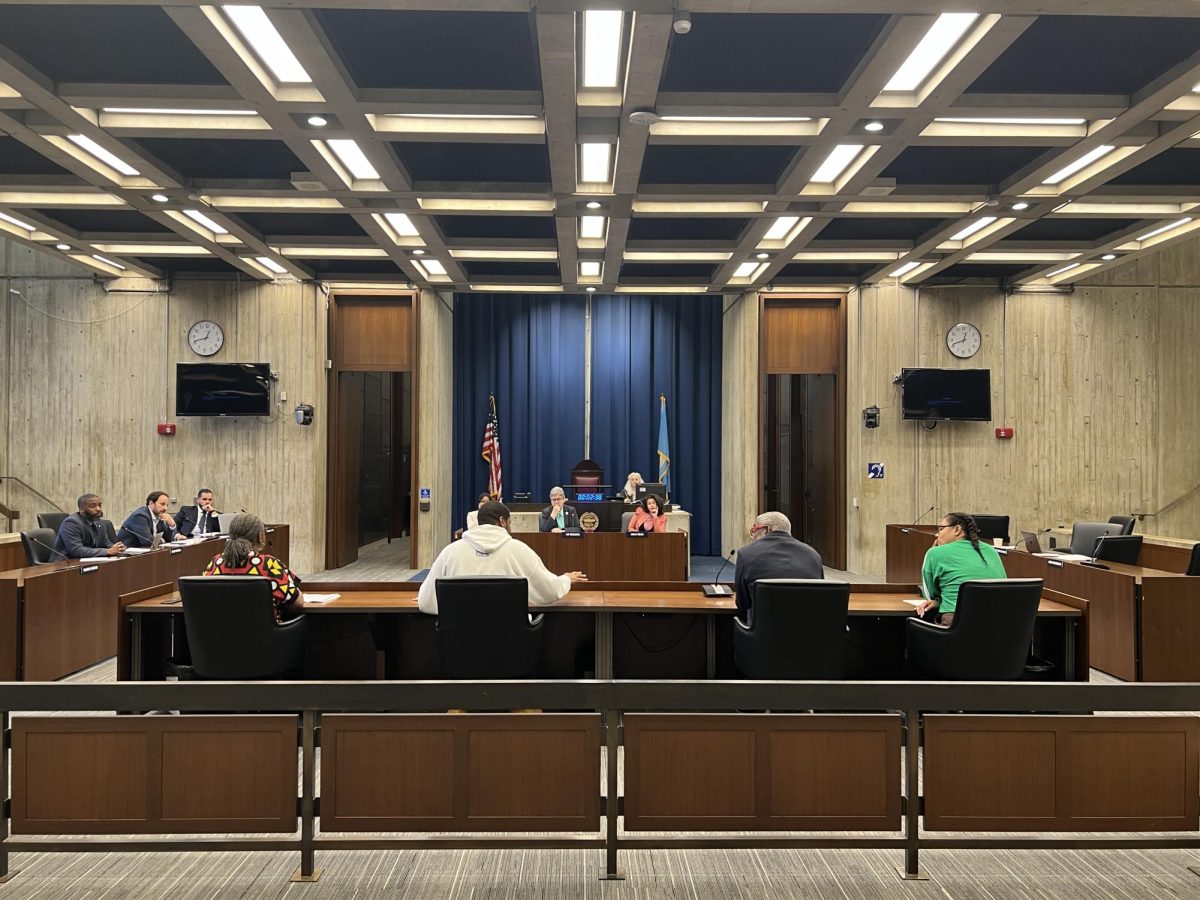By Dina Kraft
“All rise” said the first grader in a loud, clear voice. He played the role of clerk in the very real courtroom of the John Joseph Moakley U.S. Courthouse in downtown Boston, and his words opened a mock trial of Goldilocks vs. The Bears. One classmate presided over the courtroom as the judge, while others took their places as the bear defendants, the defense team, the prosecutors, the jury, and the accused — Goldilocks herself.
They came here, to the Moakley Courthouse, home of the U.S. District Court for the District of Massachusetts and the U.S. Court of Appeals for the First Circuit, on a recent rainy morning to learn more about how the legal process works. It’s a subject they had begun to study in their classrooms as part of a unit on rules and civics created by a justice- and civics-focused non-profit called Discovering Justice, based in the courthouse.
It was staff members of Discovering Justice who led the first graders of Cambridgeport School, from nearby Cambridge, through a tour of the courthouse and coached them through the Goldilocks Trial. The organization’s mission is to help elementary and middle school students understand the place of the justice system in a democracy and their role as citizens in it.
“It’s not perfect, but it’s the system we have with laws that apply to everyone equally,” Johnny Sadoff, a program associate at Discovering Justice told the children, as they gazed up at the 735 windows that soar dozens of feet into the air and look out onto Boston Harbor. He told them that the windows symbolize that the courthouse is a transparent, public space that belongs to everyone. “It’s owned by the public. It’s owned by you.”
In the “What is a Rule” curriculum, these first graders have learned about why rules are needed, who makes them, and what reasons there are to challenge them. They have learned about famous figures in history who sought to change the rules in the name of justice, like Thurgood Marshall and Susan B. Anthony.
For each grade, there is a different curriculum with an accompanying field trip to the courthouse. There is a pilot kindergarten program, for example, where students learn the story of “Three Little Pigs” from the perspective of the wolf; third graders learn about guilt or innocence through studying the story of the Boston Massacre, in another; and in others, fourth graders take part in a mock immigration hearing, fifth and seventh graders play roles in mock criminal proceedings, and sixth graders dive deeply into the Bill of Rights and apply their studies on the first and fourth amendments to a Supreme Court case.

Credit: Discovering Justice.
The program also includes an after-school mock court program for middle schoolers who get to try on being trial lawyers.
The curriculum “introduces students to some really big concepts about justice and equality in a way that is kid friendly,” said Danielle White, Strategic Partnerships Manager for Discovering Justice. “Having the ability to come into a real courtroom and have the ideas from these storybooks really come to life and see how they [the schoolchildren] can participate in justice in their communities is powerful. And even the idea of respectful discourse with classmates in the courtroom is so important, especially today.”
Discovering Justice was launched in 1998, the same year Moakley Courthouse was opened to the public. Judges and the bar association hoped the organization would turn the courthouse into a public and educational space. Last year, over 21,000 students participated in Discovering Justice programming at the courthouse. According to White, the organization is unique in its focus on elementary school age children.
“We think it’s too late to build the foundations for civic education if you don’t start at a young age,” said White.
At this mock trial of Goldilocks, Sadoff reviewed the “facts of the case” for the students, recounting both the Bear family’s distress at finding Goldilocks in their home, the family’s broken property, and the fact that Goldilocks had been hungry and tired when she came upon the family’s home. He also reminded them that, in this country, everyone has a right to a lawyer if they are accused of a crime.
The students were then instructed about their various roles.
“Whether you are the judge, a clerk, a lawyer, a witness or a jury member, each of you has an important role. No role is more important than another role,” Sadoff told them. “Without any one of the roles, we could not make this work.” He instructed the young jurors, for example, to work together and, “Always ask yourselves, ‘Am I being fair? Is this how I’d like to be treated?’”
Maisha Sport, the classroom teacher, was impressed. This experience gives, she said, “students a chance to see how adults solve problems in real life.”
The trial began with opening statements from the legal team.
Speaking for the prosecution, a girl with a blond bob introduced her argument. “I think Goldilocks is guilty because she went to someone’s house and she didn’t even know who they were. And she broke a lot of stuff.” She paused, then added, “Thank you.”
A classmate spoke for the defense and countered, “I think Goldilocks went into the house with a door that was wide open. She was really hungry and she broke a chair because it was an accident. And she was really tired, so, no, she should not be punished.”
After the witnesses testified and the closing arguments were made, the five students who made up the jury busily conferred, discussing the judge’s instructions to determine if Goldilocks had broken the rules.
There was back and forth. Minds that seemed fixed that Goldilocks was simply tired and “did not mean to break the chair,” and should therefore not be judged harshly, were, for the most part, eventually swayed by their more constitutionalist classmates.
“If she was tired and hungry, she should have gone to her own house,” said one of the jurors to the nods of others.
With that, the verdict was given to the judge.
At least one juror (this reporter’s son) was quite chuffed and convinced that being a juror is the real seat of power, despite Sadoff’s speech otherwise.
“The judge isn’t that important. It’s the jury who is most important. They are the ones who decide,” he said. Noting his first grade priorities, he observed: “And they have swivel chairs.”
Since their field trip, some students have been putting on their own mock trial during their free choice time.
“They assigned each other roles, talked about the responsibility of each role, and made up a dilemma on which to deliberate,” said Sport. “I’ve seen them do this for several weeks. As of now, they still haven’t finished their trial, so no verdict has been rendered just yet! I’m interested to see if they persist with this, and how it plays out.”







